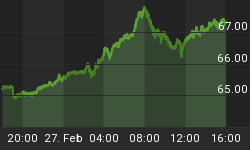Alpha Power Investing Newsletter
I'm going to invite you to invest in the stock market for 20 days each year. The investment vehicle is the Russell 2000 small cap index.
The result of this 20-day investment each year for the past 31 years (since the inception of the Russell 2000) has been an average return of 6.4%. This investment has been profitable 29 out of 31 years - a 94% win rate. The investment was unprofitable in 1984 when it lost 1%, and in 2006 when it lost 0.6%. In 2008, the year of the Great Bear Market, the Russell 2000 gained 25.7% during this 20-day investment period.
By the way, the cause of this phenomenal investment record is no secret. It is caused by an annual "constant" - an unchanging element in the equation which comes around every year no matter what the market is doing.
Because of the statistical consistency of this investment, and because we know the constant which causes it, let's up the ante and make the investment with 50% leverage (see Disclosure). The historical record of this 20-day investment, with 50% leverage, is 9.7% annually over 31 years.
Over the past ten years, the leveraged investment has returned 11.1% annually on average. The ten-year return is higher than 95% of U.S. diversified mutual funds with just a fraction of the risk.
This investment starts in about two weeks.
Long-term readers have probably guessed by now that I'm talking about investing in three "power periods" that occur in the fourth quarter of each year. Together, these three periods add up to 20 days.
The "power periods" are:- The last two trading days of October and the first two trading days of November.
- The last six trading days of November and the first three trading days of December (The Thanksgiving Rally).
- The last trading days of December (The Santa Claus Rally).
The long-term history of these three periods, using the Russell 2000 small cap index, with and without leverage is as follows:

The "constant" in the equation - the cause of this remarkable phenomenon - is human nature. Late in the year, stock analysts and economists begin to make their predictions for the next calendar year. These predictions tend to be skewed towards the most optimistic scenario. Investors, taking their cue from the "expert" predictions, take on more risk. This translates into superior returns for small cap stocks, which, being more risky, offer higher returns in a strong market. That's why the Russell 2000 routinely outperforms the S&P 500 in November, December and January. To students of the market, it's called the "small stock effect".
Over time, gamblers never win and casinos always win. Casinos win because they control the odds and they keep playing. Gamblers lose because the odds are stacked against them and they keep playing. Successful investing is about being the casino. That means doing something over and over which stacks the odds in your favor. You may not win every time, but you will win over time.
The "small stock effect" is here to stay and the positive days of the Russell 2000 late in the year are concentrated in the three "power periods" - totaling 20 days.
If you would like to be the casino, Alpha offers two strategies which depend heavily on the "small stock effect" - The Seasonal Strategy and the ALPHA Bonds Strategy. You can find the historical performance records for these strategies at the Programs and Performance section of our website at www.alphaim.net.
Please feel free to call me at 1-877-229-9400, Ext. 11 if you would like to discuss these investment programs.















